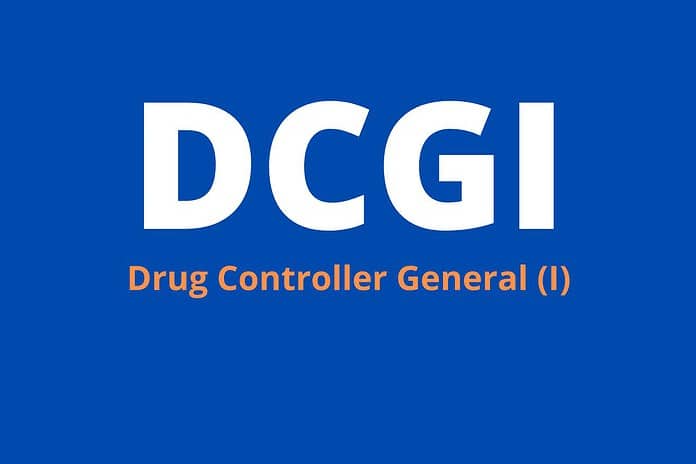Last Updated on October 9, 2024 by The Health Master
Blood Centres
Blood donation is a noble act, often associated with saving lives. However, recent concerns have arisen regarding the commercialization of blood.
In response to this, the Drugs Controller General (India) (DCGI) issued a crucial advisory, emphasizing that blood is not for sale.
This advisory stems from the 62nd Drugs Consultative Committee (DCC) meeting held on September 26, 2023.
The Committee’s Opinion
During the meeting, the Committee expressed a clear stance – blood is intended for supply, not for sale.
It recommended that blood centres should only charge for processing costs.
This prompted the Committee to advise the DCGI to issue guidelines to all blood centres, aligning them with the revised guidelines issued by the National Blood Transfusion Council (NBTC) in 2022.
DCGI’s Advisory
In response to the Committee’s direction, the DCGI issued an advisory on December 26, 2023, directed towards state and Union Territory drugs controllers.
The advisory stressed the importance of adhering to the Revised Guidelines-2022 for Recovery of Processing Charges for Blood and Blood Components issued by NBTC.
Key Points from the Advisory
- Communication to Authorities: State and Union Territory authorities were directed to ensure blood centres comply.
- Adherence to NBTC Guidelines: Clear instructions to follow the NBTC guidelines dated June 14, 2022.
Background of NBTC Guidelines
The NBTC guidelines have a history dating back to 2014 when they were first released by the Department of AIDS Control.
In 2022, a Technical Working Group, formed to review processing charges, recommended revisions.
The key focus was on establishing fair charges, including exchange value for surplus plasma.
Revised Guidelines for Government Blood Centres
The guidelines outline specific charges for government blood centres, including Rs. 1,100 each for processing whole blood and packed red cells.
Charges for fresh frozen plasma and platelet concentrate are Rs. 300 each, and cryoprecipitate is Rs. 200.
Revised Guidelines for Non-Government Blood Centres
Non-government blood centres have fixed processing charges, slightly higher than government centres.
These include Rs. 1,550 for processing whole blood and packed red cells, Rs. 400 each for fresh frozen plasma and platelet concentrate, and Rs. 250 for cryoprecipitate.
Additional charges for tests, components, and processes are also defined.
Market Factors Influencing Variations
The guidelines acknowledge variations in charges due to market availability of skilled manpower, items, and ancillary requirements.
The MoHFW emphasizes that these guidelines are indicative, allowing states to make their decisions.
Indicative Nature of Guidelines
The MoHFW recognizes the diversity in factors influencing charges.
While the guidelines provide a framework, state departments are encouraged to make decisions based on their unique circumstances.
This flexibility ensures the guidelines remain applicable across various states and sectors.
Mandatory Free Services
Crucially, the guidelines underscore the obligation of all blood centres, both government-supported and others, to provide blood or blood components free of cost.
This service is specifically targeted at patients with thalassemia, haemophilia, sickle cell anaemia, and other blood dyscrasias requiring repeated transfusions.
Implementation Challenges
Implementing these guidelines may pose challenges, especially in addressing variations in manpower, items, and ancillary requirements.
States and sectors must navigate these complexities to ensure the ethical provision of blood and blood components.
Disclaimer: This article contains information derived from the source mentioned below. Our team utilized an AI language model to rewrite and present the news or article in a unique format.
FAQs
- What led to the issuance of the DCGI advisory? The advisory was issued in response to concerns raised during the 62nd DCC meeting regarding the overcharging of blood.
- What are the key charges outlined in the revised guidelines for government blood centres? Charges include Rs. 1,100 each for processing whole blood and packed red cells, Rs. 300 each for fresh frozen plasma and platelet concentrate, and Rs. 200 for cryoprecipitate.
- Why do non-government blood centres have slightly higher processing charges? Non-government blood centres have higher charges due to variations in market availability of skilled manpower, items, and ancillary requirements.
- Are the guidelines rigid or flexible in nature? The guidelines are indicative and allow state departments to make decisions based on local factors, ensuring flexibility.
- Which patients are entitled to free blood or blood components according to the guidelines? Patients with thalassemia, haemophilia, sickle cell anaemia, and other blood dyscrasias requiring repeated transfusions are entitled to free services.
Procedure to obtain license for Blood Centre (Blood Bank)
Bulk transfer of Blood and Blood Components: Procedure and Conditions
Latest Notifications: Blood Centre / Bank
Blood Centre (Bank) – requirements at a glance
Mandatory requirements for Blood donation camps
Pharmacopoeial status of Blood and its components
FAQs – on Blood Bank / Centre (Part-1)
FAQs – on Blood Bank / Centre (Part-2)
FAQs – on Blood Bank / Centre (Part-3)
FAQs – on Blood Bags and its Testing
FAQs on Legal Metrology & Blood Bags
Your Guide to Preventing and Treating Blood Clots
Adequate and safe blood transfusion for all: Article
Why India needs more blood donors: Article
Blood Centre: Precautions and safety to be observed during blood transfusion
Blood Bank / Centre: Difference Between SDP and RDP
Operation of Blood Storage Centres
Blood Bank / Centre: Difference Between SDP and RDP
Blood Centre: Precautions and safety to be observed during blood transfusion
The Indian Pharmacopoeia Commission: Bidding for Pharmaceutical Impurities
Govt revises Schedule M: Revolutionizing Pharmaceutical Manufacturing
New class of antibiotics developed to fight drug-resistant bacteria
USFDA approval granted for this generic drug to treat diabetes
Gujarat FDCA: Obtain Online Non Conviction and Performance Certificates
CDSCO Directs GSK to Submit Data for Belantamab Mafodotin Trial
NPPA’s Directive: Streamlining Drug Formulation Pricing
Govt Job: For M.Pharm, Pharm.D under (IPC) Indian Pharmacopoeia Commission
UK MHRA’s Revolutionary International Recognition Procedure
Drug recall: Benzocaine Topical Anesthetic Spray recalled Due to this reason










